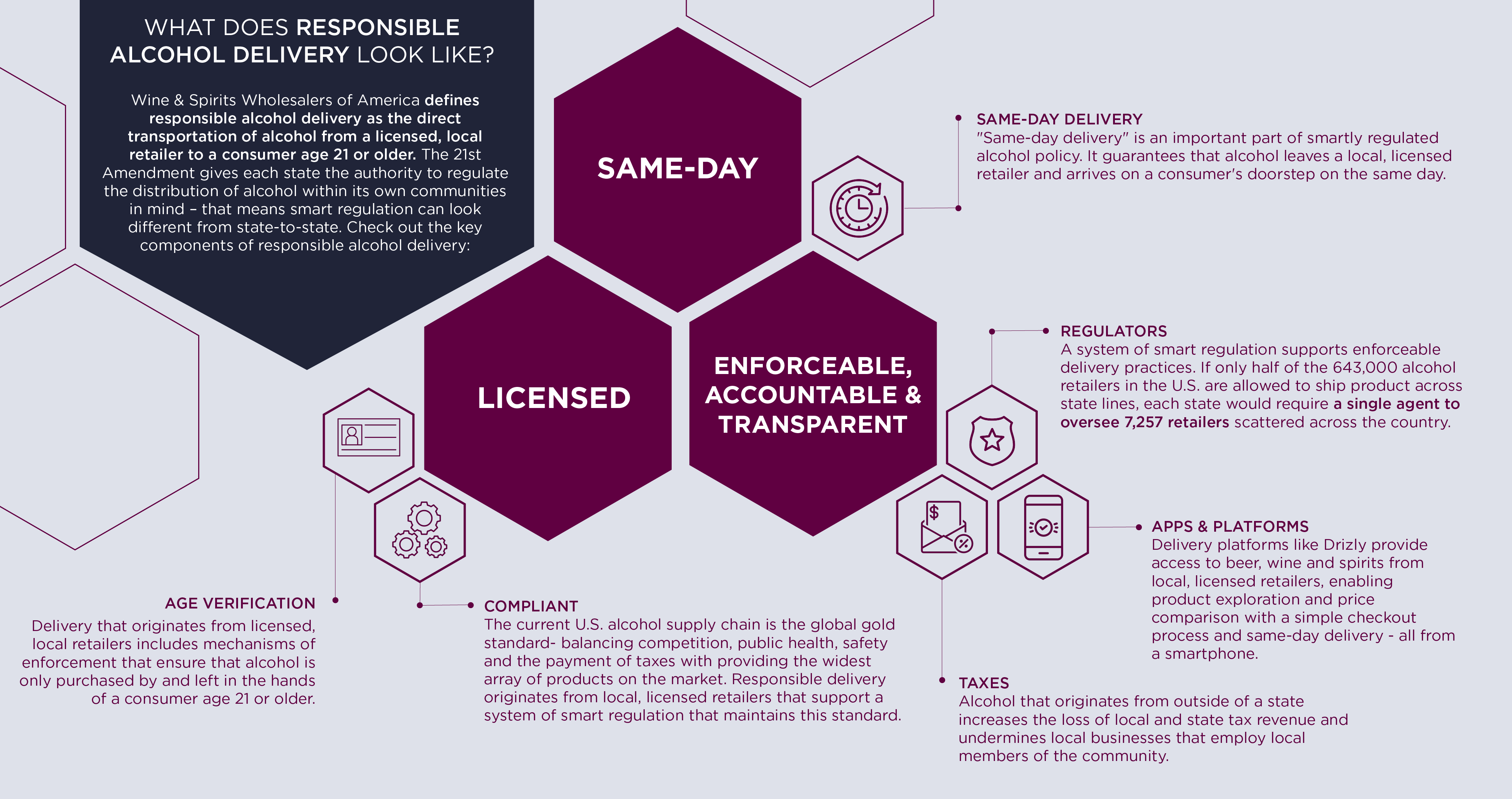The COVID-19 pandemic created a shelter-in-place environment in the U.S. that prompted consumers to minimize public contact and seek “doorstep” convenience for virtually everything, including alcohol.
Early in the ongoing COVID-19 pandemic, in an effort to protect all points in the industry supply chain and keep consumers from an increased risk of exposure, WSWA urged 50 U.S. Governors, President Trump and Congressional Leadership to designate alcohol wholesalers and retailers as essential businesses. Alcohol retailers quickly took advantage of licensed delivery and curbside pick-up options where already allowed, while regulators and elected officials in many jurisdictions temporarily rolled out similar consumer-friendly options in areas where they hadn’t existed before.
States that were permitting retailer delivery and online marketplaces of alcohol to operate before the pandemic, and those who relaxed restrictions during the crisis, adapted to consumer demand while maintaining the current U.S. regulated system of alcohol distribution. Regulators innovated to help retailers while ensuring public health and safety.
Delivery platforms like Drizly are doing the same. Even before the pandemic, Drizly worked to meet increased consumer demand for convenience, by providing access to beer, wine, and spirits from local, licensed retailers, enabling product exploration and price comparison with a simple checkout process and same-day delivery from a smartphone. Today, licensed delivery platforms are helping to keep community-based businesses operating and competitive and providing retailers with safeguards such as contactless age verification of consumers through proprietary technology.
Consumer delivery from licensed, in-state retailers is one example of the adaptability the three-tier system provides, and a change that has long been championed by Wine & Spirits Wholesalers of America (WSWA). WSWA, along with its almost 400 members throughout the country, believes that convenience and smart regulations can and should coexist in a digital marketplace to support today’s local marketplace, as well as secure consumer choice and public safety.
In an effort to protect consumers and maintain the standard of public safety the current U.S. system of alcohol distribution ensures, WSWA defines responsible alcohol delivery as the direct transportation of alcohol from a licensed, local retailer to a consumer age 21 or older.

